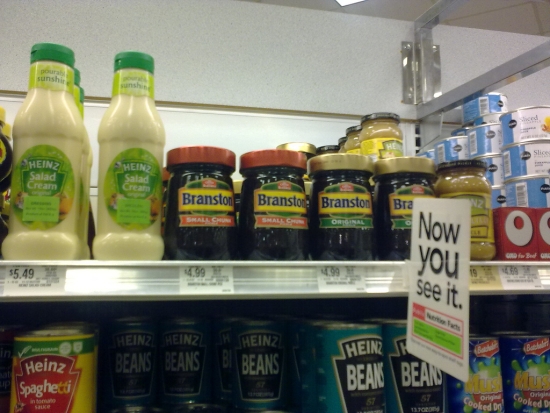Many British businesses continue to struggle, as although the recession is officially over, consumers are still wary of excessive spending in case the economy takes a turn for the worst once more. This has meant that parent companies often find themselves unable to continue funding subsidiaries, with many making the decision to sell off their stock to international businesses more capable of investing in these firms.

This week, Premier Foods has decided to agree sales terms with Japanese firm Mizkan, signing off on a deal reportedly worth £92.5 million for sandwich filler brand Branston Pickle. The sale also includes Branston products such as ketchup, salad cream, mayonnaise and relish.
Premier Foods has previously done business with the Japanese company, having sold two brands to them – Sarson’s vinegar and Hayward pickles – earlier this year. The previous sale also included the production premises in Burntwood, Staffordshire, allowing Mizkan to become one of the leading suppliers of rice vinegar in the UK.
The Branston Pickle sale will close early next year, with Mizkan expected to take over management of the brand at that point. Mizkan will also gain around 350 staff members from Premier Foods’ Bury St Edmunds site as part of the deal.
Premier Foods, led by chief executive Mike Clark, is now expected to focus its attention on eight “power brands” in a bid to reduce the debt built up by the company during the years of the recession. These include Ambrosia, Bisto, Hovis, Mr Kipling and the Batchelor’s soup brand, which have proven to be popular even during a time of economic crisis.
However, there does remain a certain level of uncertainty about some of Premier Foods’ remaining brands, such as Angel Delight, Paxo and Homepride. Analyst at Panmure, Graham Jones, believes that more sales may be in the pipeline so Premier Foods can continue to chip away at its mountain of debt.
He says; “We do not think this sale rules out further disposals, such as sweet dehydrated powders like Bird’s custard, or even selling the company as a whole if a high enough offer is received.
“After these recent disposals Premier Foods still has a high net debt to earnings ratio and a very large pension deficit, which has to be serviced from a smaller cash generative base.”
The offloading of many of Premier Foods’ brands is part of a £1.4 billion refinancing plan set to reduce company debt significantly by the middle of 2014. Following the Branston Pickle sale, the firm will have made £370 million worth of total disposals – meaning that Premier Foods is significantly ahead of its target to sell off £330 million in assets by June 30th 2014.
Mr Clarke stated his satisfaction that the company is well on its way to recovery, due to the combination of disposals and a rising sales growth.
He said; “I am delighted to have exceeded our disposal target 20 months early while at the same time delivering three successive quarters of sales growth.
“We can now focus our attention on driving further momentum in our grocery business and unlocking value in our bread business.”
It cannot be ignored that there is still a large amount of debt – £1.82 billion at last count – for the food giant to work through, not to mention the winning back of investors after eleven profit warnings in five years. However, the brands sales and return to profitability this year has indicated that the business is making huge leaps in terms of progress.
Hopefully, this will mean that Premier Foods is one UK based business that will be able to call itself a success story in the coming years – something that the country desperately needs to encourage international investment back into Britain.
Do you think selling off traditional British brands to international firms is a good idea to boost revenue in this country, or do you believe that keeping these brands firmly in this country would lead to a bigger pay off in the end? How would you speed up the turnaround at Premier Foods – selling off brands, as they are doing, or trying to channel funds into the expansion of the individual subsidiaries in order to increase overall profit margins?
Previous Post
UK Commercial Property Outlook Improves
Why is Branston Mustard Pickle in a squeezy bottle no longer available? I really miss it.